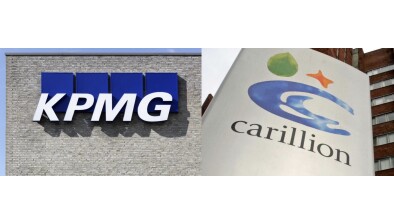James Kergon: Data could drive success for Scotland’s dealmakers
James Kergon, a partner and head of KPMG’s deal advisory team in Scotland, looks back at 2019 and previews 2020 from an M&A perspective, focusing on how data and tech are going to drive a lot of future Scottish activity.

James Kergon
In recent years, Scotland’s business community has become increasingly resilient – learning to adapt and flex in a growing climate of political and economic uncertainty. 2019 was certainly no different. A lack of clarity on future trading conditions inevitably impacted to a degree on dealmaking activity with many buyers and vendors opting to pause their biggest investment decisions until some of the fog had cleared.
While our future trading relationship with both Europe and the rest of the world remains unclear, a firm decision on Brexit has emboldened some decision-makers, prompting some predictions of a flurry of activity in the first half of 2020.
As we head into a potential uptick in M&A activity, technology is set to play a more significant role than ever before. Traditionally, as advisors, we would have to invest considerable time compiling data and performing financial analysis to build a picture of a business. Today, significant advancements in technology and a new breed of data experts are enabling us to shift from the role of ‘detective’ to a ‘data scientist’, pinpointing everything from financial issues to geographical and sectoral trends.
From a dealmaking perspective, we’ve witnessed a reducing reliance on the use of traditional management accounts as the main source of data in due diligence. Their importance in the diligence process is somewhat diminishing and making way for transactional data, which has been unleashed by new technologies. This is financial and non-financial micro data that records items such as individual sales and purchase invoices, profit margins on specific products or footfall in certain stores by time and date. In short, it’s all about harnessing that granular level of information to draw insights on a company’s business model and trends in its market, but also to fix issues and steer future strategy.
Management teams should already be asking themselves – What data do they have? How can I get to it easily? And, most importantly, how can I present it well and learn from it to make better decisions?
These questions are now best practice in due diligence, on both sides of the negotiating table. When trying to sell a business, a vendor needs to consider how data can also provide the evidence to back up their decisions and articulate value to others. For buyers, they want to know where the money is coming from, get right into the guts of any issue – deep in the data – so they can orientate the business properly and make the most out of the acquisition.
This means that conversations during deal processes are less driven by emotion and generalised assumptions, but with facts and reason, supported by quantifiable information. In turn, leading businesses is often less about significant changes in strategy and direction and increasingly focused on fine-tuning and tweaking business models thanks to increased availability of highly detailed data sets.
Where does this lead us advisors and the human element of dealmaking? Frankly, there will always be an intangible, gut-feel nature to M&A work. You need experience and intuition to direct the data analytics in the right direction, and then the human brain to interpret the information. Helpfully, the technology frees us up to spend our time making those difficult decisions, rather than wrestling with spreadsheets.
All too often, we hear terms that can feel a little hyperbolic, such as the ‘data revolution’, but the reality is that a huge transformation in how we use technology to drive significant business decisions has arrived, creating the perfect foundation for a period of strategic growth for businesses in 2020 and beyond.
While we look forward to an uptick in deal momentum over the next few months, what happens towards the end of the year, as we approach the end of the Brexit transition period, remains uncertain. One thing we do know is that technology and data driven science are helping to create a robust framework for us to assist businesses and investors better than ever before.








